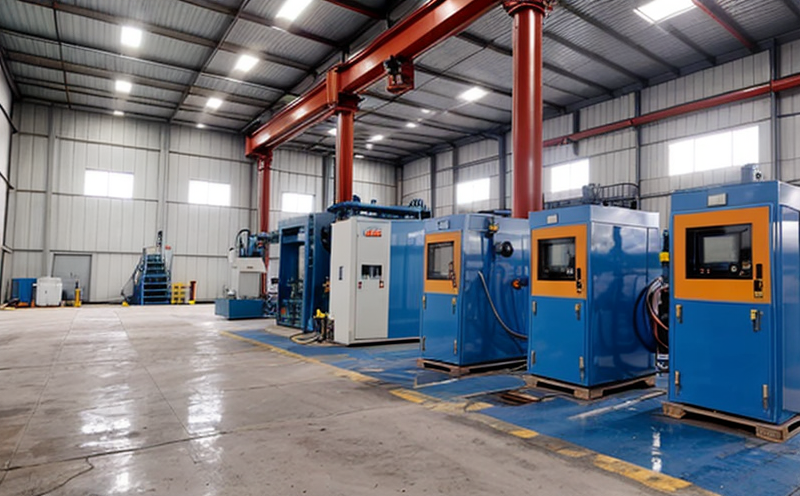EN 1926 Uniaxial Compressive Strength of Dimension Stone Testing
The uniaxial compressive strength test (EN 1926) is a critical procedure for assessing the resistance to uniaxial compression that dimension stones exhibit. This service ensures that materials used in construction and civil engineering projects meet the required standards, thereby enhancing safety and durability.
Dimension stones are widely used in various applications such as paving slabs, kerbstones, tiles, and other architectural elements. The test is essential to ensure consistent quality across different production batches or suppliers. By measuring compressive strength, we can determine the robustness of these materials under stress conditions which they might encounter during use.
The EN 1926 standard specifies a method for determining the uniaxial compressive strength of dimension stone products using cylindrical specimens. This test helps to identify any inconsistencies in manufacturing processes or raw material quality that could affect performance over time.
Our testing facility adheres strictly to this international standard, ensuring accurate results and reliable data. Our team has extensive experience in performing these tests accurately, providing clients with confidence in their product specifications. We also offer additional services like certification and compliance audits based on EN 1926 standards.
In addition to testing raw materials, we can evaluate finished products to ensure they meet specific project requirements. For instance, if a client needs stones with particular compressive strengths for an outdoor flooring application in high traffic areas, our tests will confirm whether the chosen material meets those expectations.
Understanding how different factors influence results is crucial when interpreting EN 1926 test data. Variables such as specimen size, loading rate, and environmental conditions can significantly impact outcomes. Our technicians are trained to control these variables rigorously during testing to provide consistent and repeatable measurements.
Compressive strength testing plays a pivotal role in many industries beyond just dimension stones; it’s also used for concrete aggregates, bricks, ceramics, etc., but within our scope here, we focus specifically on dimension stone products. By leveraging this knowledge base, we can offer tailored solutions that cater directly to the needs of clients operating within this sector.
Our commitment extends beyond just providing test results; we aim to educate stakeholders about best practices in testing and quality control so they too can make informed decisions regarding their materials choices.
Applied Standards
| Standard Code | Title of Standard |
|---|---|
| EN 1926:2017 | Method for Determining the Uniaxial Compressive Strength of Dimension Stone Products |
Benefits
- Ensures consistent quality across production batches or suppliers.
- Identifies inconsistencies in manufacturing processes or raw material quality that could affect performance over time.
- Promotes safety and durability of construction projects involving dimension stones.
- Facilitates certification and compliance audits based on EN 1926 standards.
Environmental and Sustainability Contributions
By ensuring that only high-quality, durable dimension stones are used in construction projects, this testing contributes positively towards sustainability goals by reducing the need for frequent replacements due to structural failures. Additionally, adhering to strict environmental regulations during production helps minimize waste and resource consumption.





